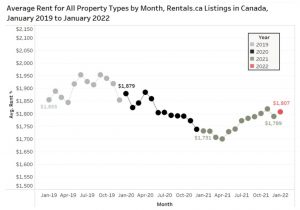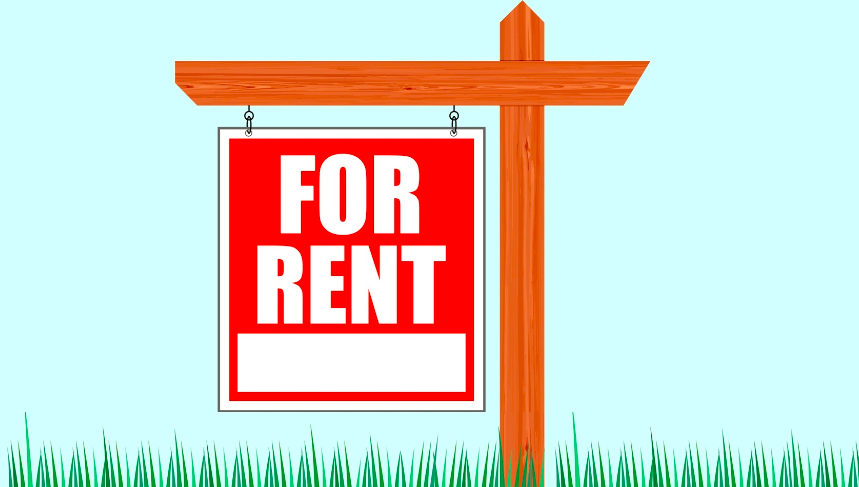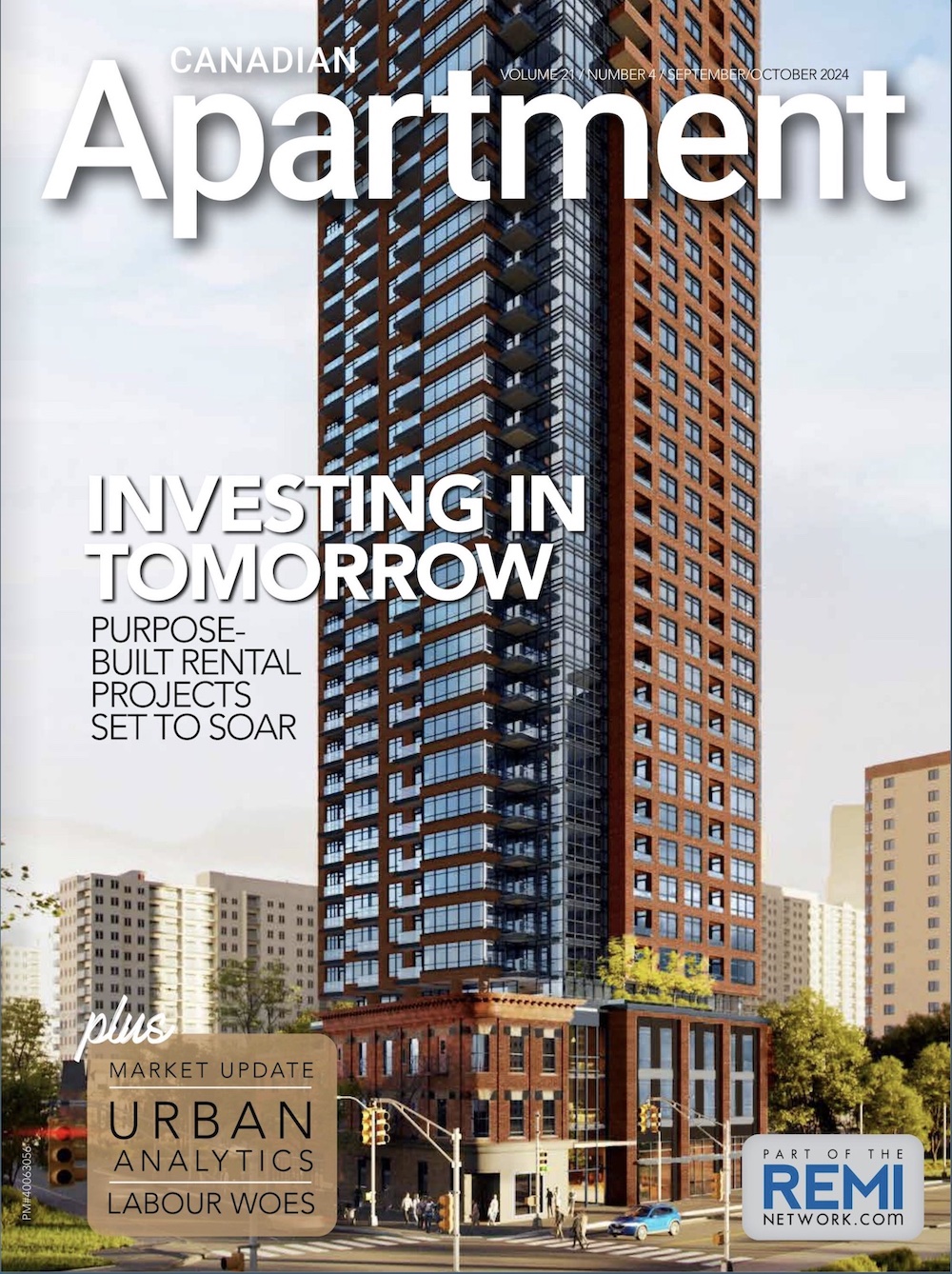After the typical seasonal decline in December, the average rent in Canada is trending upwards once again. Fears around the Omicron variant have all but vanished, and prospective tenants are back on the hunt for rental housing.
At the national level, the rental market peaked in late 2019 and fell steadily over the course of the pandemic, hitting rock bottom in April 2021. This is the fifth consecutive month average asking rents for all property types were positive year over year based on Rentals.ca listings, following 16 consecutive months of annual decline.
“January rents increased monthly in Canada, following a decrease in December, which we believe was just the typical seasonal decline, as opposed to Omicron fears,” said Ben Myers, president of Bullpen Research & Consulting. “However, the pandemic trend of much higher demand for larger properties continues, with average rental rates for single-family properties up 20 per cent annually. The need for more space, a frothy resale market, future interest rate hikes, and the decoupling of workers from their place of employment remain key factors in the rise.”
 Municipal rates
Municipal rates
Many municipalities across Canada are experiencing substantial annual increases in average rent, although analysts do warn that comparisons this year will skew high.
Vancouver currently has the most expensive rents in the country for all property types at $2,550 per month, which represents an annual increase of 16.2 per cent. Toronto was the next most expensive city in Canada coming in at $2,317 per month, up 14.5 per cent annually.
Meanwhile, Gatineau and London experienced the largest annual increases in average rent: Gatineau increased 17.8 per cent to $1,657 per month, while London increased 17.2 per cent to $1,820 per month.
Other municipalities with annual increases include: Etobicoke, up 12.4 per cent; Ottawa, up 5.1 per cent; Mississauga, up 5.1 per cent; Montreal, up 4.1 per cent; Saskatoon, up 4 per cent; Hamilton, up 3.9 per cent; Winnipeg, up 2.5 per cent and Calgary, up 2.3 per cent.
Only a handful of municipalities experienced annual declines in average rent, including Scarborough, which fell 1.9 per cent to $1,848 per month.
Property types
The largest increases in rent across Canada continue to be for single-family rentals, as many potential buyers choose to avoid entering the “frothy” ownership market. Potential government intervention and future interest rate hikes are likely playing into their decision to postpone buying.
The average rent for a single-family home in January was $2,652 — up nearly 20 per cent above last January’s average of $2,215. Average rent for condo rentals increased 13.8 per cent annually to $2,227, while apartment rents were up 2.1 per cent annually to $1,639 in January.
In Vancouver, average rent for single-family homes rose from $2,758 per month in 2021 to $2,987 in January 2022, represenitng a 8.3 per cent increase. Condominium rents were up 7.1 per cent and apartment rents were up 8.4 per cent.
Toronto saw a similar increase in average asking rent for single family homes, while condo apartments made a real come-back, rising 13.6 per cent in January 2022. Average rents for apartment rentals increased 5.7 per cent.
All the data can be found in the February National Rent Report at: www.rentals.ca






